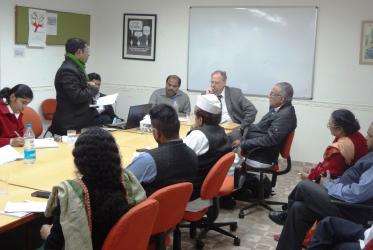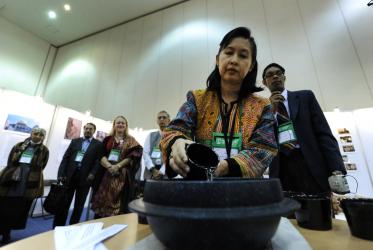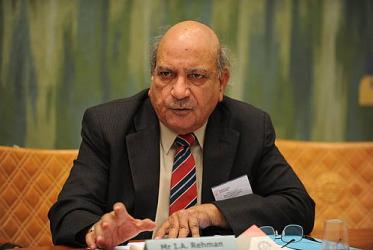Displaying 161 - 180 of 218
22 September 2014
Indian churches speak against discrimination faced by Dalits
26 February 2014
WCC Assembly addresses contemporary public issues
08 November 2013
Assembly renews churches’ commitment towards justice and peace
08 November 2013
ÖRK-Zentralausschuss wählt erstmals Afrikanerin zur Vorsitzenden
08 November 2013
Religious leaders highlight significance of water at WCC assembly
04 November 2013
Dialogue on politicization of religion and rights of minorities
17 September 2013
Cold War politics and the world’s churches
04 September 2013
Concern and solidarity for Bangladesh
17 May 2013
WCC adopts statements on contemporary public issues
12 September 2012









